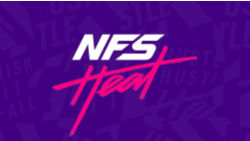AMD Radeon RX 640 vs NVIDIA GeForce GTX 480
The Radeon RX 640 has 4% better performance than the GeForce GTX 480 for the 3DMark 11 Performance GPU benchmark.
The GeForce GTX 480 has 6% of the performance per dollar compared to the leader for the 3DMark 11 Performance GPU benchmark: AMD Radeon RX 9070 XT.
Summary
About the AMD Radeon RX 640 GPU
The AMD Radeon RX 640 is a desktop graphics card that launched in Q2 2020. It is built on the GCN 4.0 GPU microarchitecture (codename Polaris 23) and is manufactured on a 14 nm process.
Memory
The RX 640 has 4 GB of GDDR5 memory, with a 1,500 MHz memory clock and a 128 bit interface. This gives it a memory bandwidth of 96 Gb/s, which affects how fast it can transfer data to and from memory. GPU memory stores temporary data that helps the GPU with complex math and graphics operations. More memory is generally better, as not having enough can cause performance bottlenecks.
Cores and Clock Speeds
The RX 640 includes 640 stream processors (SPs), the processing units for handling parallel computing tasks. The GPU operates at a core clock speed of 1,218 MHz and can dynamically boost its clock speed up to 1,218 MHz. Complementing the processing units are 40 texture mapping units (TMUs) for efficient texture filtering and 16 render output units (ROPs) for pixel processing.
Compatibility & Power Consumption
The RX 640 is a compact, low-profile graphics card that fits into 1 PCIe expansion slot. It supports DisplayPort 1.4a, mini-DisplayPort 1.4a display connections. AMD recommends a power supply of at least 250 W to handle the GPU's thermal design power (TDP) of 50 W.
Benchmark Performance
The RX 640 has the 269th best 3DMark 11 Performance GPU score among the 567 benchmarked GPUs in our database. It achieves 4.03% of the performance of the best benchmarked GPU, the NVIDIA GeForce RTX 5090.
About the NVIDIA GeForce GTX 480 GPU
The NVIDIA GeForce GTX 480 is an end-of-life desktop graphics card that released in Q1 2010 with a MSRP of $499. It is built on the Fermi GPU microarchitecture (codename GF100) and is manufactured on a 40 nm process.
Memory
The GTX 480 has 1,536 MB of GDDR5 memory, with a 924 MHz memory clock and a 384 bit interface. This gives it a memory bandwidth of 177.4 Gb/s, which affects how fast it can transfer data to and from memory. GPU memory stores temporary data that helps the GPU with complex math and graphics operations. More memory is generally better, as not having enough can cause performance bottlenecks.
Cores and Clock Speeds
The GTX 480 includes 480 CUDA cores, the processing units for handling parallel computing tasks. The GPU operates at a core clock speed of 700 MHz. Complementing the processing units are 60 texture mapping units (TMUs) for efficient texture filtering and 48 render output units (ROPs) for pixel processing.
Compatibility & Power Consumption
The GTX 480 occupies 2 PCIe expansion slots. It supports DVI, mini-HDMI 1.3a display connections. NVIDIA recommends a power supply of at least 600 W to handle the GPU's thermal design power (TDP) of 250 W.
Benchmark Performance & Value
The GTX 480 has the 272nd best 3DMark 11 Performance GPU score among the 567 benchmarked GPUs in our database. It achieves 3.86% of the performance of the best benchmarked GPU, the NVIDIA GeForce RTX 5090. Its 5,014 score and $499 launch price (MSRP) gives it a performance per dollar of 10.05. This is the 112th best in value for the 3DMark 11 Performance GPU benchmark.
General Info
General overview of the GPU, including details like its manufacturer, release date, launch price, and current production status.
| Info | Radeon RX 640 | GeForce GTX 480 |
|---|---|---|
| Manufacturer | AMD | NVIDIA |
| Architecture | GCN 4.0 | Fermi |
| Market Segment | Desktop | Desktop |
| Release Date | Q2 2020 | Q1 2010 |
| Launch Price (MSRP) | -- | $499 |
| Production Status | Active | End-of-life |
| Shop | Check Price | Check Price |
Gaming Performance
Select a game to compare FPS metrics







FPS Benchmarks
This table showcases the average frame rate (FPS) achieved both GPUs in at various resolutions. Frame rate is a crucial indicator of how smoothly the GPU can run the game. A higher FPS generally translates to a smoother gameplay experience.
- Frames Per Second
 Star Wars Jedi: Fallen Order | Radeon RX 640 | GeForce GTX 480 |
|---|---|---|
| Low - 720p | -- | -- |
| Medium - 1080p | 26 FPS | -- |
| High - 1080p | -- | -- |
| Ultra - 1080p | -- | -- |
| QHD - 1440p | -- | -- |
| 4K UHD - 2160p | -- | -- |
Compare Frames Per Second (FPS)
The average frame rate (FPS) in can be compared to similar GPUs to assess relative performance. Generally, higher FPS results in a smoother gameplay experience.
| GPU | Frames Per Second | |
|---|---|---|
| GeForce GTX 1650 | 77 | +197% |
| GeForce GT 1030 | 31.4 | +21% |
| Radeon RX 640 | 25.9 | |
Compare Cost Per Frame
The average cost per frame in can be compared to similar GPUs to assess relative value. Generally, a lower cost per frame implies better value for your money.
| GPU | Cost Per Frame | |
|---|---|---|
| Our database does not have enough data to compare the FPS per dollar with other GPUs. | ||
Benchmark Performance
The Radeon RX 640 has 4% better performance than the GeForce GTX 480 for the 3DMark 11 Performance GPU benchmark.
The Radeon RX 640 is ranked 269th with a score of 5,235, and the GeForce GTX 480 is ranked 272nd with a score of 5,014.
The GeForce GTX 480 has 15% of the performance per dollar compared to the leader for the 3DMark 11 Performance GPU benchmark: NVIDIA GeForce RTX 5090.
GeForce GTX 480's 10.05 performance per dollar ranks it 0th among the other benchmarked GPUs in our database.
Relative Performance
The average score in the benchmark test can be compared to similar GPUs to assess relative performance. Generally, powerful GPUs tend to have higher scores.
| GPU | Benchmark Performance | |
|---|---|---|
| Radeon HD 7970 | 7,770 | +48% |
| Radeon HD 7870 (GHz Edition) | 6,194 | +18% |
| GeForce GTX 750 Ti | 5,378 | +3% |
| Radeon RX 550X | 5,344.5 | +2% |
| Radeon RX 640 | 5,235 | |
| GeForce GTX 480 | 5,014 | -4% |
| GeForce GT 1030 | 4,727.5 | -10% |
| GeForce GTX 470 | 4,342 | -17% |
| Radeon HD 6870 | 4,218 | -19% |
| Radeon HD 7770 (GHz Edition) | 3,098 | -41% |
Relative Value For Money
The average performance per dollar in the benchmark test can be compared to similar GPUs to assess relative value. A higher score implies a better value for your money.
| GPU | Performance Per Dollar | |
|---|---|---|
| Radeon HD 6870 | 17.65 | +76% |
| Radeon HD 7970 | 14.15 | +41% |
| GeForce GTX 590 | 13.11 | +31% |
| GeForce GTX 470 | 12.44 | +24% |
| Radeon HD 6450 | 11.33 | +13% |
| GeForce GTX 480 | 10.05 | |
Benchmark Scores
This table showcases the average performance scores achieved by both GPUs across industry-standard benchmark tests. These scores provide a valuable insight into overall performance. Powerful GPUs tend to have higher scores.
- Popular
| Benchmark | Radeon RX 640 | GeForce GTX 480 |
|---|---|---|
| 3DMark Time Spy Graphics | 1,007.5 | -- |
| 3DMark Time Spy Score | 1,116.5 | -- |
| 3DMark Cloud Gate Graphics | 19,945.5 | -- |
| 3DMark Fire Strike Standard Graphics | 3,498.5 | -- |
| 3DMark 11 Performance Score | 5,411 (+8.61%) | 4,982 |
| Cinebench R15 OpenGL 64 Bit | 84.2 | -- |
| PassMark G3D Mark | 2,165 | 4,106 (+89.65%) |
| PassMark G2D Mark | 353 | 435 (+23.23%) |
Technical Specs
Graphics Processor
General information about the graphics processing unit like their architecture, manufacturing process size, and transistor count. Newer GPU architectures generally bring efficiency improvements and may introduce technologies that enhance graphical capabilities.
| Spec | Radeon RX 640 | GeForce GTX 480 |
|---|---|---|
| Codename | Polaris 23 | GF100 |
| Architecture | GCN 4.0 | Fermi |
| Process Size | 14 nm | 40 nm |
| Transistors | 2,200 million | 3,100 million |
Memory Details
Memory specifications like their capacity, bandwidth, and clock speeds. GPU memory stores graphics data like frames, textures, and shadows which helps display rendered images. These specs are crucial for graphics-intense applications like gaming and 3D modeling.
| Spec | Radeon RX 640 | GeForce GTX 480 |
|---|---|---|
| Memory Size | 4 GB | 1,536 MB |
| Memory Type | GDDR5 | GDDR5 |
| Memory Bandwidth | 96 Gb/s | 177.4 Gb/s |
| Memory Clock | 1,500 MHz | 924 MHz |
| Memory Interface | 128 bit | 384 bit |
| L1 Cache | 16 KB | 64 KB |
| L2 Cache | 512 KB | 768 KB |
Board Compatibility
Compatibility information like their slot size, bus interface, power consumption, and display support. These specs are useful for verifying compatibility with your motherboard, power supply, and monitor.
| Spec | Radeon RX 640 | GeForce GTX 480 |
|---|---|---|
| Slots | 1 slot | 2 slots |
| Bus Interface | PCIe 3.0 x8 | PCIe 2.0 x16 |
| Thermal Design Power (TDP) | 50 W | 250 W |
| Suggested PSU | 250 W | 600 W |
| Power Connectors | -- | 1x 6-pin + 1x 8-pin |
| Outputs | DisplayPort 1.4a, mini-DisplayPort 1.4a | DVI, mini-HDMI 1.3a |
Cores & Clock Speeds
Processing power information like its cores and clock speed. These specs impact how fast they can process graphics. Each type of core or component serves a specific computational purpose.
| Spec | Radeon RX 640 | GeForce GTX 480 |
|---|---|---|
| Stream Processors (SP) | 640 | -- |
| CUDA Cores | -- | 480 |
| Compute Units (CU) | 10 | -- |
| Stream Multiprocessors (SM) | -- | 15 |
| Texture Mapping Units (TMU) | 40 | 60 |
| Render Output Units (ROP) | 16 | 48 |
| Core Clock Speed | 1,218 MHz | 700 MHz |
| Core Clock Speed (Boost) | 1,218 MHz | -- |
Theoretical Performance
Theoretical performance numbers derived from the raw specifications of the different components like core count and clock speeds. While these provide a glimpse into peak processing power, they do not represent real-world performance.
| Spec | Radeon RX 640 | GeForce GTX 480 |
|---|---|---|
| Pixel Fill Rate | 20.72 GPixel/s | 21.03 GPixel/s |
| Texture Fill Rate | 51.8 GTexel/s | 42.06 GTexel/s |
| FP32 Performance | 1.66 TFLOPS | 1,345 GFLOPS |
| FP64 Performance | 103.6 GFLOPS | 168.1 GFLOPS |
API Support
Graphics API versions supported by these graphics cards. APIs evolve over time, introducing new features and functionalities. Older GPUs may not support recent versions.
| Spec | Radeon RX 640 | GeForce GTX 480 |
|---|---|---|
| DirectX | 12 (12_0) | 12 (11_0) |
| OpenCL | 2.1 | 1.1 |
| OpenGL | 4.6 | 4.6 |
| Shader Model | 6.7 | 5.1 |
Check out these comparisons for similar GPUs:
Looking for alternatives? Check out these similar GPUs:
* Performance rating, performance per dollar, and rankings are based on the 3DMark 11 Performance GPU benchmark and MSRP.
